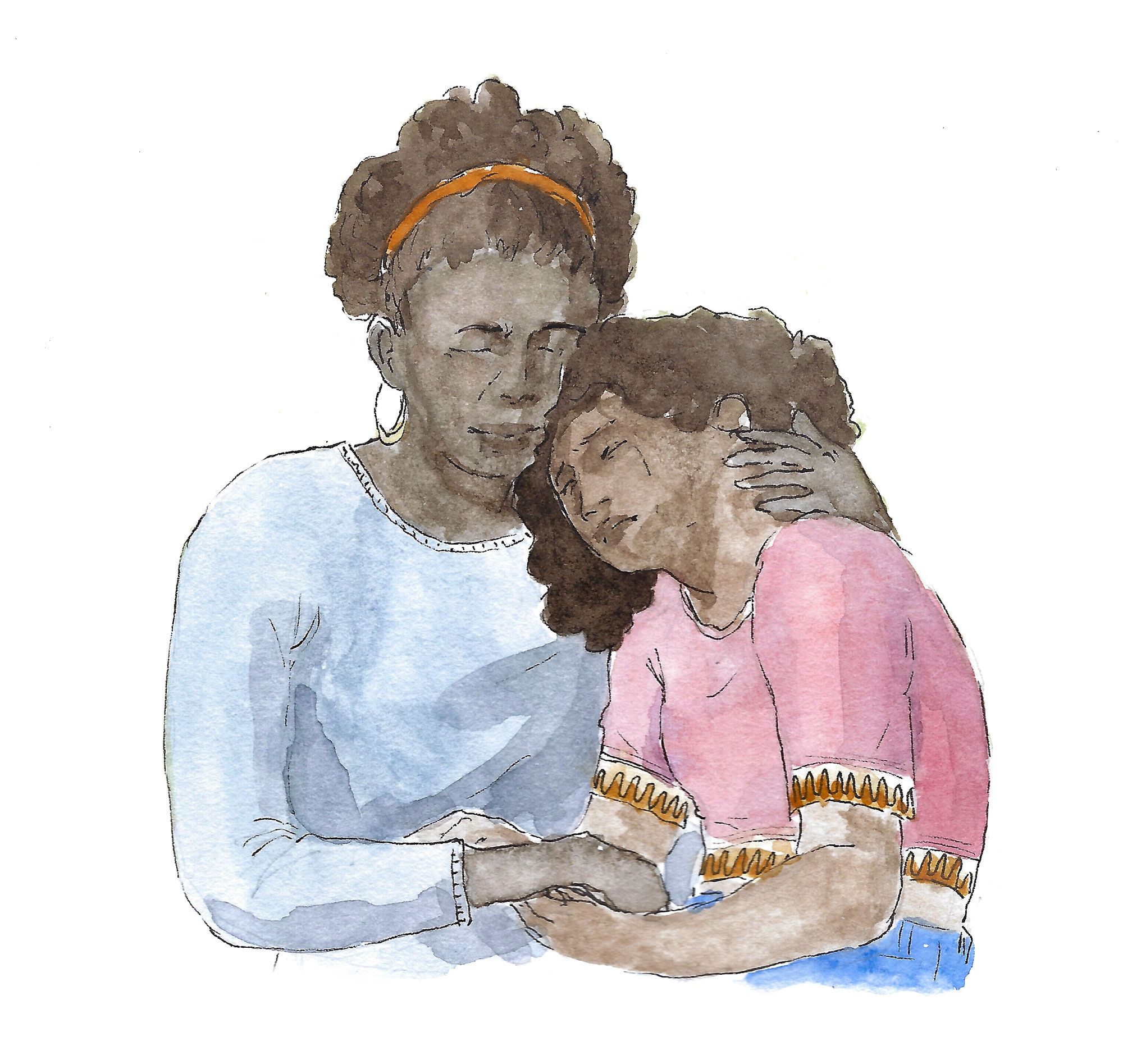How can I help my traumatised child?
How can I help my traumatised child?
- How can parents help?
- Startpage
Perhaps you have fled your homeland because it has been destroyed, or because a war is going on there. You have left the home that you shared with your family. And on your journey to Germany, you may also have experienced great hardship. Perhaps you fled your homeland because you felt that your life and that of your children was threatened. Many things were also very difficult while on the run. People who have experienced such unsafe circumstances are sometimes haunted by the memories for a long time. The images of threaten- ing events are particularly hard to forget. The fear associated with them plagues the mind and soul. It is normal and human to feel this way, but sometimes the memories remain alive. The memories of a terrible event sometimes continue to hurt like a physical wound. Such memories are sometimes unlike any you have ever experienced. When you think about these threatening events, it can be like living through them all over again. Rather than it feeling like something that occurred in the past, it is as though the experience itself returns with the memories. And rather than these memories gradually becoming fainter, they remain strong and vivid – making it difficult to lead a normal life again. It can be a similar experience for your children. Perhaps you have noticed changes in their behaviour. Perhaps your child has become very easily frightened. Perhaps he or she sleeps poorly and is woken by nightmares. Children and teenagers are especially sensitive, and may be particularly shaken by threatening experiences. Children and teenagers react in very different ways to overwhelming events. Some become withdrawn, sad, and depressed. Others become very restless and much more active. Older children might suddenly begin behaving like young children. They may, for example, wet their beds again. Other children become very demanding and want to be in control of everything around them. Some older children and teenagers will believe that they have no future. They will say that they won’t grow up and become adults.
How can parents help?
Try to make your child feel as safe and protected as possible. Be understanding when they are afraid. Tell them that you understand what they are feeling. Explain to them that they don’t need to be afraid anymore, that the war is now far away, and that they are no longer threatened by it in Germany.
Show them that you love them and that you love being with them. Spend time with them, and avoid leaving them alone in unfamiliar settings as much as possible. What your child needs most is security.
Children should not be nagged or reprimanded for not forgetting terrible events – for not pulling themselves together and behaving normally again. Understand that, even though they want to, they are unable to make the memories go away.
Compelling your child to hide his or her thoughts and feelings doesn’t make those thoughts and feelings go away. Not only do the thoughts and feelings remain, but it becomes harder for your child to live with them.
Sometimes when young children are playing, they will re-enact the events they have experienced. Don’t stop them from doing this, as it helps them come to terms with the memories.
If your child has become very withdrawn, you can gently try to talk about the experience with him or her. You can also suggest drawing a picture about it.
If the changes in your child’s behaviour remain for weeks and months, you should seek the help of a specialist – one who is familiar with the mental suffering of children and teenagers. In Germany, these specialists are called Kinder- und Jugendlichenpsychothe-rapeuten (child and adolescent psychotherapists) or Kinder- und Jugendpsychiater (child and adolescent psychiatrists).
To find out more about how to help your child, you can read the information in this guide. It has been arranged by age group.
Advice by age group
Kleinkinder
Vorschulkinder
Schulkinder
Jugendliche
Contact
You are welcome to send us a message using the following contact:
Bundespsychotherapeutenkammer (BPtK)
Klosterstraße 64, 10179 Berlin
E-Mail: info@bptk.de
Tel.: 030 278785-0
Fax: 030 278785-44
